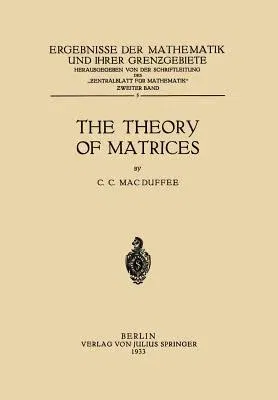Cyrus Colton Macduffee
(Author)The Theory of Matrices (1933)Paperback - 1933, 1 January 1933

Qty
1
Turbo
Ships in 2 - 3 days
In Stock
Free Delivery
Cash on Delivery
15 Days
Free Returns
Secure Checkout
Part of Series
Ergebnisse Der Mathematik Und Ihrer Grenzgebiete. 1. Folge
Part of Series
Ergebnisse der Mathematik Und Ihrer Grenzgebiete
Print Length
111 pages
Language
English
Publisher
Springer
Date Published
1 Jan 1933
ISBN-10
3642984215
ISBN-13
9783642984211
Description
Product Details
Author:
Book Edition:
1933
Book Format:
Paperback
Country of Origin:
US
Date Published:
1 January 1933
Dimensions:
24.41 x
16.99 x
0.66 cm
ISBN-10:
3642984215
ISBN-13:
9783642984211
Language:
English
Location:
Berlin, Heidelberg
Pages:
111
Publisher:
Series:
Weight:
208.65 gm

